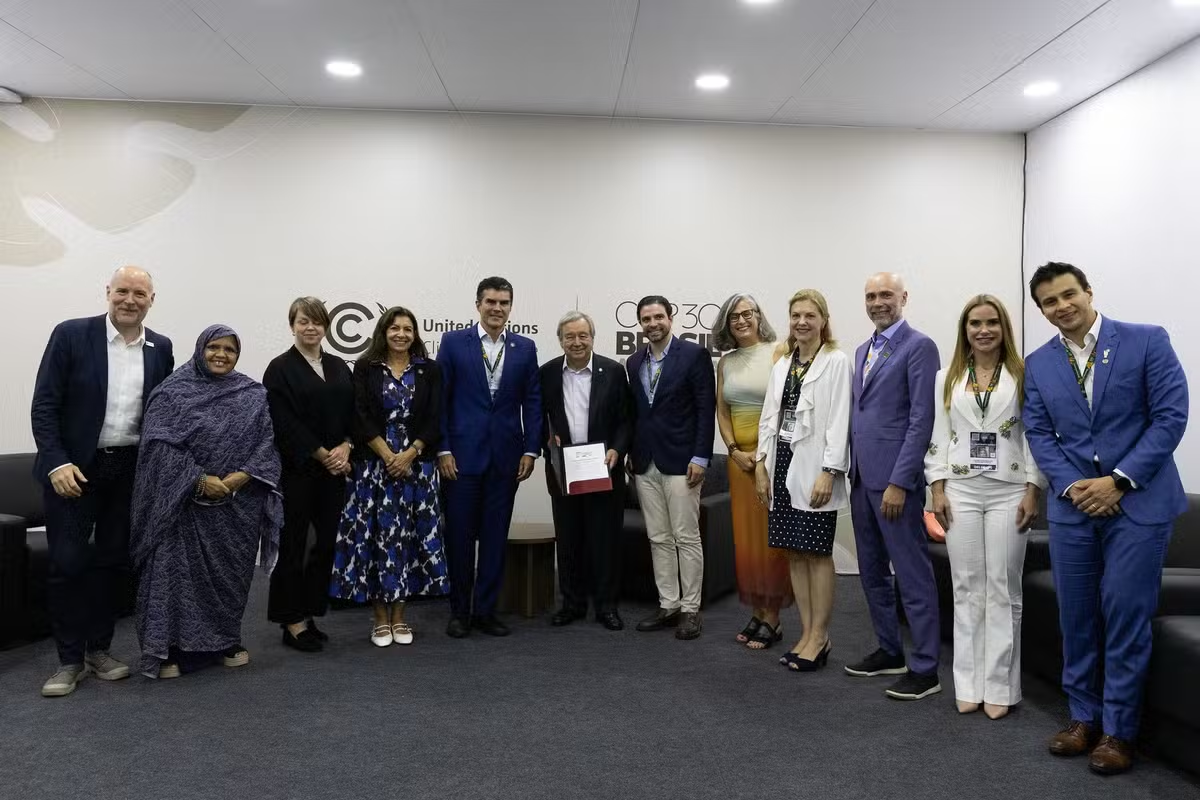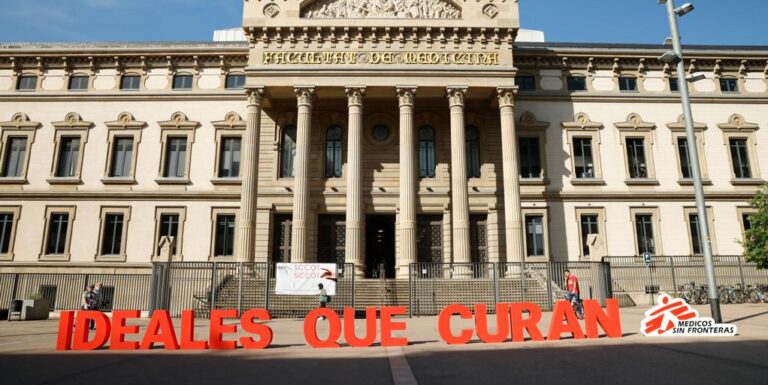
Apart from formal negotiations, local and regional government representatives are taking an increasing role at COP30 and are demanding more space at the forefront of urban impacts and adaptation measures in the face of climate change. In Belém, these local leaders primarily demand formal recognition of local governments as full partners and the creation of formal forums for discussions focused on local action and increased funding.
- COP30: Queen of Denmark visits Belém chocolate factory in recognition of efforts to tackle environmental issues
- video: A recording of Minister Celso Sabino and Krupila participating in a parade wearing animal costumes has gone viral on the network.
On Monday (10th), a climate change commitment document with 14,000 signatures from mayors and governors of cities and states around the world was delivered to United Nations Secretary-General António Guterres in a call for an Implementation COP.
In his opening remarks, the President of the Conference, Andre Correa de Lago, gave special greetings to the governors and mayors present.
— Local governments play a vital role in implementing COP decisions, so the presence of governors and mayors is very important.
When contacted, COP30 did not say how many mayors and governors will be attending Belém, but participants acknowledged that attendance had increased significantly. The second-largest delegation of mayors after Brazil is from the United States, with more than 50 municipal managers participating, underscoring the country’s presence in the debate even without President Donald Trump.
For Mark Watts, executive director of C40 Cities, the global network of mayors of the world’s largest cities, who has been leading the campaign, the COP President’s speech set the tone for how space will become a reality. For the first time, a large-scale formal meeting of local leaders was held in the presence of the COP Presidency, the United Nations, and large global corporations.
— The mayor is the implementer. And when we move from negotiation to implementation, the mayor must be the first to act. Because the mayor controls the services that produce emissions. Watts emphasized that local government’s agenda is specific. — We came to Brazil not to talk about commitments 10 or 20 years from now, but to present a “commitment to action for the year” that includes concrete steps to be taken within the next 12 months. Our contribution is to shift the focus from endless negotiations to real action.
Among the C40 cities’ annual commitments cited by Watts are the creation of a low-emissions zone to improve air quality in Rio, the construction of enough wind farms to supply 900,000 homes in Tokyo, and a project in London that reduced pollutants in the air by 60% by charging fees for private cars. The British capital is now aiming to clean up its rivers.
In addition to action to reduce emissions, Andy Deacon, Executive Director of Mayors for Climate and Energy (GCoM), recalled that mayors are among the first to respond to climate disasters in emergency relief measures.
— and most importantly, they were the first to build a plan to make cities more resilient. They are literally on the front lines, he noted.
/i.s3.glbimg.com/v1/AUTH_da025474c0c44edd99332dddb09cabe8/internal_photos/bs/2025/p/p/k6scZpQXC8hOmVh2NjwA/whatsapp-image-2025-11-11-at-22.27.18.jpeg)
The weight of this agenda at the COP was made clear last week in Rio de Janeiro when nearly 300 local leaders from five continents gathered for the C40 Global Mayors Summit 2025, part of the Local Leaders Forum hosted by the COP30 Presidency and Bloomberg Philanthropies. The document delivered to Antonio Guterres was prepared there, and he also declared that climate action depends on the efforts of cities.
The requirements of this document are divided into three main axes. One is to formally recognize cities and local governments as full partners. Create a space within the process where mayors and governors are integrated into energy transition and emissions reduction goals. It also allows access to more public and private resources for local action, since climate change funding typically only reaches the federal government.
British Prime Minister Yvonne Aki-Sawyer, Mayor of Sierra Leone’s capital Freetown and C40 co-chair, said COP30 was the best opportunity in a decade to make progress on climate change, but the challenges were huge.
— Our cities are growing. By 2050, Africa’s urban population will double. These are young cities. By 2030, an estimated 60% of people living in cities will be under the age of 18. These young people deserve to live in clean, safe and prosperous cities, and this will only be possible if our generation acts now. To do this, he said, support is needed, including access to funding and approvals at the highest levels, starting from COP30.
Although Freetown is a poor city, it has an urban renewal program that is considered cutting-edge. In recent months, international city coalitions such as C40 and GCoM have been meeting with multilateral development banks on a mission to raise more financing for adaptation and climate resilience efforts.
At COP30, cooperation between local governments is also being strengthened. On Saturday (8th), Paris Mayor Anne Hidalgo and Belém Mayor Igor Normand (MDB) signed a cooperation agreement focused on regeneration and urban reforestation projects, with support from the World Council of Mayors.
Network Against Climate Change Denialism
Strong networks are still helping to fight climate misinformation, emphasizes Mark Watts:
— The pollution sector is responding with force, trying to confuse the public and spread misinformation. But when mayors come together and exchange experiences, they can approach these campaigns with confidence.
Among domestic challenges, the empowerment of cities and states on climate change is part of the climate plan launched by the Ministry of the Environment, which recognizes “climate federalism” as a fundamental part of Brazil’s NDC, explains Walter De Simoni, manager of climate policy, institutions and law at iCS.
— This realization was already the first step. Brazil now needs to create a governance system that will lead to cooperation between already existing national programs. State and local governments are essential to raising ambition. This role is growing and is now being retained by local governments, he said.
In addition to regional activities, regional consortia are also important on the agenda. For example, BNDES encourages the creation of inter-municipal consortia and network infrastructures to finance projects. This Tuesday (11th), the Brazilian Northeast Ecological Transformation Project (PTE-NE) was officially launched at COP30. This is an unprecedented project that combines sustainable development, innovation and social inclusion, bringing together measures to promote the region’s green economy.
Piauí State (PT) Governor Rafael Fonteles defended the region’s cuts in climate funding.
— Plans tend to be sectoral, but over time, more developed and affluent regions typically have a greater ability to leverage financing. We therefore pressed for a specific credit request to the Northeast. The governor explained during the Green Zone panel, adding that despite accounting for 14% of the GDP and 23% of the population, the northeastern states only had access to 9.9% of the national production credit last year.



